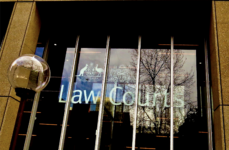Suspicious Amendment of Criminal Law Judgement Results In Successful Appeal

A recent decision by the New South Wales Court of Criminal Appeal has raised eyebrows over the finding that official court records relating to a sentencing hearing were amended well after the case had been finalised to suggest the presiding judge had taken into account the defendant’s early plea of guilty, when in fact it appears he had done no such thing.
The judgement has shaken the NSW legal profession – with some speculating the subsequent amendments were made to cover-up the judge’s failure to provide the defendant with a sentencing discount for his early guilty plea.
The Case
The case in question is Borri v R [2023] NSWCCA 166, for which the judgement was published this past Friday, 30 June 2023.
The case involved a man who pleaded guilty in the District Court of New South Wales to 26 child sexual offences against four children and was sentenced by his Honour Judge King SC to a full term of 16 years’ imprisonment with a minimum term of 12 years.
By virtue of his early plea of guilty, the defendant was entitled to a 25% statutory sentencing discount; in other words, to have the length of his sentence to be reduced by a quarter.
During the sentencing hearing, however, the judge neglected to state that a sentencing discount has been applied, let alone to quantify that discount.
Entries later amended
Suspiciously, 21 months after the sentencing hearing and 27 days after a notice of appeal was filed, the judgement on New South Wales Caselaw was amended to state, “JusticeLink entries demonstrating that a 25% discount was allowed in respect of each plea”.
A hyperlink was provided in the amended judgement to the JusticeLink entry, which consisted of a 43 page document providing an explanation for each sentence given during the origin sentencing hearing including the comment “Sentence discount of 25.0% is included”.
Appeal to NSWCCA
The defendant filed as appeal to the NSWCCA on three grounds:
- That the sentencing Judge failed to take into account the applicant’s plea of guilty.
- That the sentencing Judge did not comply with s 25F(7) of the Crimes (Sentencing Procedure) Act 1999 (NSW)
- Alternatively, that that the aggregate sentence is manifestly excessive.
The rules regarding early pleas of guilty
Section 22 of the Crimes (Sentencing Procedure) Act 1999 provides that in passing sentence for a person who has pleaded guilty, the court must take into account:
- the fact a plea of guilty has been entered,
- when the plea was indicated, and
- the circumstances in which the plea was indicated.
Section 25D(2) of the Act, prescribes the following discounts for pleas of guilty for indictable offences:
- 25% for a guilty plea before committal in the Local Court; in other words, before an indictable offence (an offence which can be referred to a higher court) is referred to the District or Supreme Court,
- 10% for a guilty plea more than 14 days before the first day of trial in the District or Supreme Court or where the defendant complied with the pre-trial notice requirements and pleaded guilty at the first available opportunity able to be obtained, and
- 5% thereafter.
As the applicant in Borri had pled guilty before committal they were entitled to a 25% sentencing discount.
Section 25F(7) of the Act, states that ‘when passing sentence for the offence’ the sentencing Judge must record:
- If the sentencing discount is applied, how the sentence imposed was calculated,
- If the court determines in accordance with this section not to apply or to reduce the discount, the reasons for the determination.
The judgement on appeal
The NSWCCA upheld the appeal on the basis that the sentencing judge had failed to to take into account the defendant’s early plea of guilty and did not record any sentencing discount during the original sentence.
In doing so, the Court of Appeal ignored the amendment made to the judgement on NSW Caselaw as the “timing of the amendment was problematic and the Court could not be certain of the reliability of the record”.
The Court further noted that there was “significant doubt that the applicant received the benefit of entering his plea of guilty in the Local Court and the Judge had not explained the way in which the sentence was calculated.”.
The resentenced the defendant, imposing a fresh sentence of 14 years imprisonment, with a non-parole period of 10 years.






